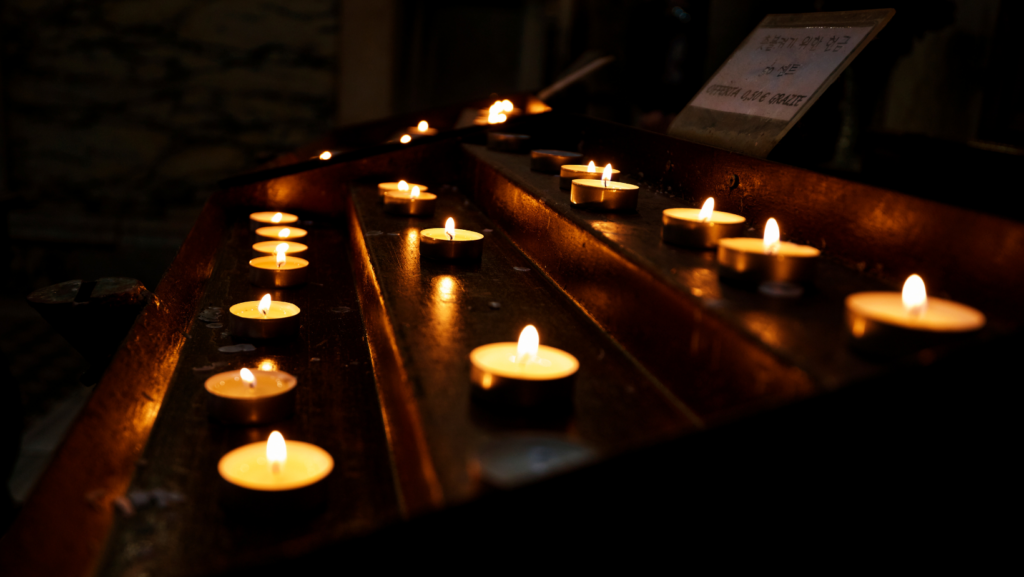
In the labyrinth of life’s biggest questions, two concepts often surface: religion and spirituality. They’re intertwined, yet distinct, and understanding the difference can shed light on our personal journeys and the world around us.
Religion is often seen as a structured path, a set of beliefs and practices shared by a community. Spirituality, on the other hand, tends to be more individualistic, a personal quest for understanding and connection. But is that all there is to it?
What is the difference between religion and Spirituality

Religion anchors on organized beliefs and cultural systems. It encompasses doctrines and codes of conduct that guide its adherents. People belonging to a religion draw their values and morals from religious texts or teachings. These codes dictate ways of living, behavioral norms, and often, rituals such as prayers or worship ceremonies.
Contrastingly, spirituality is an individual pursuit of existential significance. It’s about personal development and self-discovery. It doesn’t abide by dogma or set protocols but emphasizes personal experience, inner peace, and connections with others and the universe. An individual practicing spirituality may draw wisdom from various sources, investigating self-consciousness, and probing life’s deeper meanings.
Historical Perspectives and Evolution
Development of Religious Practices
It’s notable that religion has its origins in the Prehistoric era. Marked by cave paintings and the creation of symbolic objects, humankind’s curiosity about existential questions laid the groundwork for religious rituals and beliefs. As societies began to structure themselves, so did religions, becoming intertwined with law-making and governance. Ancient civilizations like the Egyptians, Sumerians, and Subsequent empires, such as the Romans, employed religion as a conduit for social cohesion and moral guidance, utilizing sacred texts and doctrines to reach the divine and provide ethical frameworks.
Growth of Spiritual Movements

Contrastingly, spiritual movements have always been a part of human history but gained particular prominence in the late 20th century. A distinct shift in focus from the external to the internal, individuals began seeking existential answers through introspection and personal connections to the universe.
The New Age movement, mindfulness practices, and even Yoga are instances of spiritual movements that echo this paradigm shift. Modern spirituality encapsulates flexible and custom existential paths that resonate with individuals on a personal level.
Core Differences Between Religion and Spirituality
The core distinctions between religion and spirituality primarily linger in the realms of beliefs and practices. They highlight the unique ways in which individuals perceive and pursue the ultimate truth, purpose, and meaning.
Beliefs and Practices
Religion often manifests in established beliefs and rituals, stipulated by distinct doctrines, based on sacred writings such as the Bible, Qur’an, or Vedas. Every religion has its specified code of conduct, bound by the theology garnered through faith or trust in a divine entity.
On the other hand, spirituality remains unconstrained and customized. It’s a type of metaphysical freedom pursued through different practices such as meditation, yoga, mindful walking, or even the simple act of contemplating nature.
Community Vs. Individual Approach

Religion typically fosters communal ties, centered around shared beliefs, traditions, rituals, and values. Religion connects individuals, fostering a sense of belonging and togetherness, often providing a clear moral and ethical compass.
On the contrary, spirituality embodies an individual pursuit, focusing on personal self-discovery, development, and a direct connection with the profound. It opts for an exploration of the self instead of a communal and organized path.
These contrasts underscore the key differences between religion and spirituality, notwithstanding, one doesn’t exclude the other.
Beyond the Binary
The distinction between religion and spirituality is clear. Religion provides a structured path with communal bonds, influencing lifestyle and morality through doctrines and codes of conduct. It’s tangible in public life, shaping moral decisions and legislative matters. On the other hand, spirituality is a personal journey, focused on self-discovery and inner peace. It’s less constrained, allowing for a direct connection with the profound without the limitations of organized dogma. While some find spiritual fulfillment within religious structures, others seek it outside organized religion. The choice between religion and spirituality is a personal one, and it’s important to respect and understand the unique paths individuals choose in their quest for meaning and understanding.
